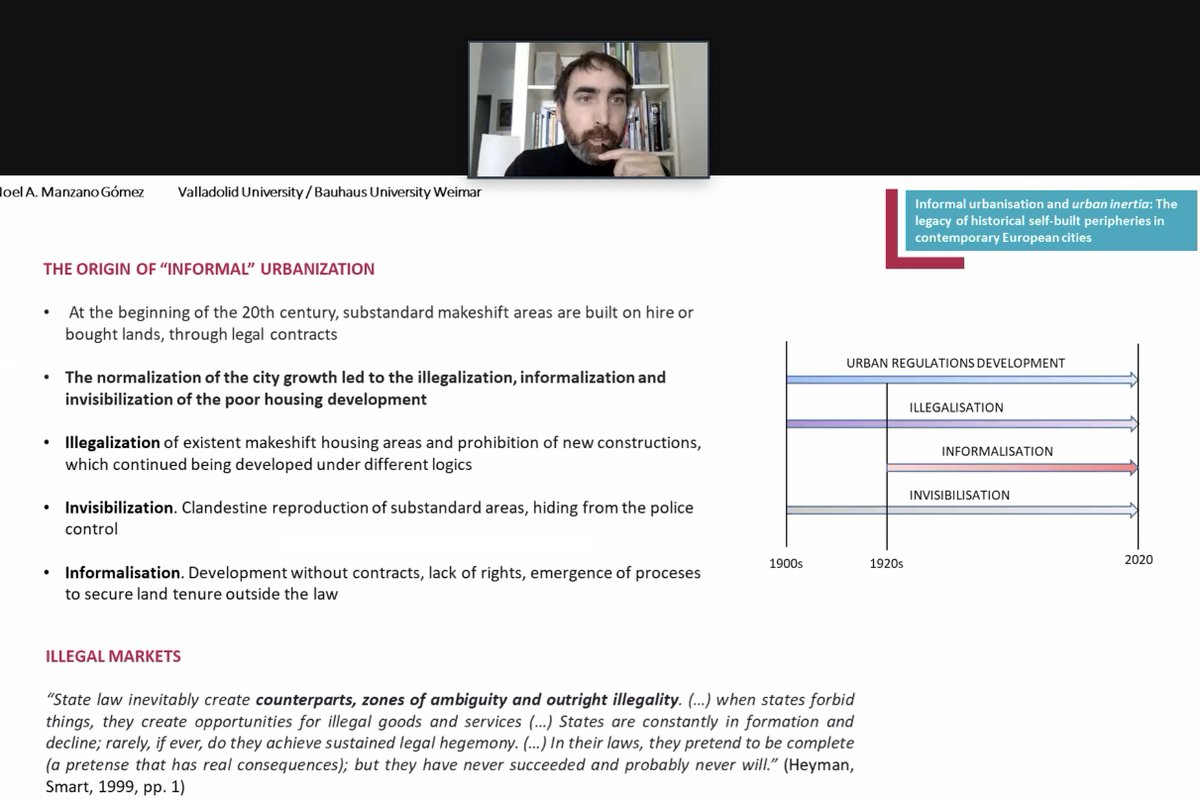
Sven Daniel Wolf (@SDVolk) brings us to think about researching in authoritarian spaces: 

Proposing 4 aspects of the minor key in researching such contexts:
-encounter - a contextual engagement
-digestion - allowing time
-connection - understanding the encounter through finding other things, people, materials
-representation - communication, ethics, safety
-encounter - a contextual engagement
-digestion - allowing time
-connection - understanding the encounter through finding other things, people, materials
-representation - communication, ethics, safety

Wolfe concludes: Thinking closed contexts through a minor key as a way of avoiding reification of those in power
Trubina (@Amaurotum)comments:
When it comes to contemporary urban agendas, where to you see this projects potential?
The notion of authoritarian practices is interesting, but I ask, does one need to come to Belarus? What about those who are not white, not well off?
When it comes to contemporary urban agendas, where to you see this projects potential?
The notion of authoritarian practices is interesting, but I ask, does one need to come to Belarus? What about those who are not white, not well off?
Wolfe: there is not much city in my paper here. With those scholars like Roy calling for bringing theory from the South, methodologically/theoretically I'm conscious of doing this from/thru the East
Wolfe: The intention of theorising from the East here is to trouble the notion of authoritarianism, which exists not in the manifestation of a state like Belarus, but in the West as well: Portland or London, for example
Trubina:
What about the relation between music and urban studies or theory?
What about the relation between music and urban studies or theory?
Wolfe:
Music is an exciting way to think through this: the transition between major and minor keys where the music becomes more compelling. That transition is the key moment, it indexes greater moves and broader relevance and can avoid closure
Music is an exciting way to think through this: the transition between major and minor keys where the music becomes more compelling. That transition is the key moment, it indexes greater moves and broader relevance and can avoid closure
Wolfe:
In Russia, I see myself as a partial insider. My insider/outsider access can be leveraged depending on context, and this instability and challenge of these aspects of fieldwork really deserve a whole paper!
In Russia, I see myself as a partial insider. My insider/outsider access can be leveraged depending on context, and this instability and challenge of these aspects of fieldwork really deserve a whole paper!
Q from floor:
Southern theorists like Ananya Roy theorises South as a political position rather than a geographical location. In that sense how is thinking from east (as a periphery of centres of knowledge-power) different from south?
Southern theorists like Ananya Roy theorises South as a political position rather than a geographical location. In that sense how is thinking from east (as a periphery of centres of knowledge-power) different from south?
Wolfe:
There are many Souths and many Sasts. As Roy comes from a subaltern or postcolonial position, this delimits her position in a different from the East, which is both colonised and coloniser, etc. It holds this interstitial space, which is a different political position
There are many Souths and many Sasts. As Roy comes from a subaltern or postcolonial position, this delimits her position in a different from the East, which is both colonised and coloniser, etc. It holds this interstitial space, which is a different political position
Wolfe: A sense of belonging but not quite
Q from the floor:
Could you elaborate how thinking in terms of a micro theory could advance the agenda of destablising the “theoretical heartlands” of urban theory?
Could you elaborate how thinking in terms of a micro theory could advance the agenda of destablising the “theoretical heartlands” of urban theory?
Wolfe: micro theory and minor theory are not the same: there are micro moments of the everyday are important but this is not what I mean by minor. Destabilising the theoretical heartlands grounds theory in the East, for example, rather than relying on it's North/West origins
@threadreaderapp unroll
• • •
Missing some Tweet in this thread? You can try to
force a refresh





















